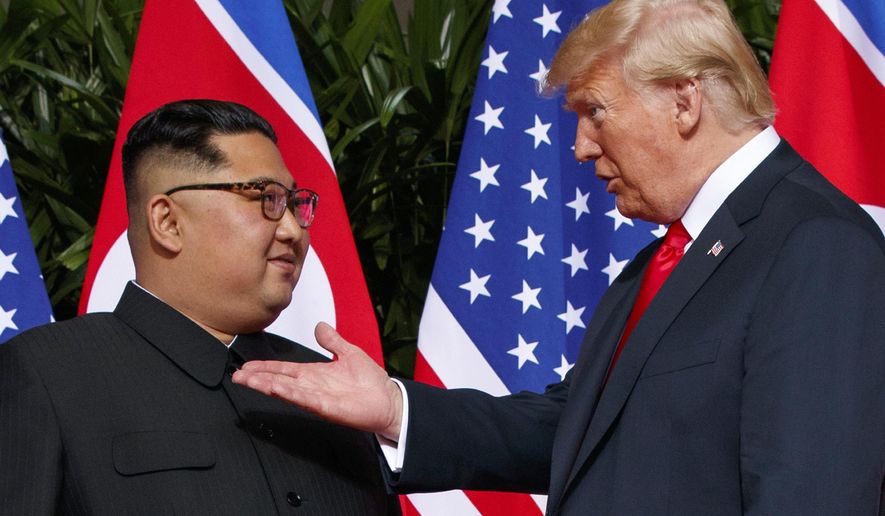The Trump administration’s top envoy on the Korean nuclear crisis will meet Wednesday with his counterpart in Pyongyang in preparation for the impending second summit between President Trump and North Korean leader Kim Jong-un.
U.S. officials say the visit by U.S. Special Representative to North Korea Stephen E. Biegun shows there is new momentum in denuclearization talks ahead of the Trump-Kim summit slated for Feb. 27-28 in Vietnam.
Mr. Trump announced the location and dates during his State of the Union address Tuesday night, asserting he has built a good relationship with Mr. Kim even as “much work needs to be done” in the push for denuclearization.
Mr. Biegun will meet Wednesday in Pyongyang with key North Korean negotiator Kim Hyok-chol to build on the first Trump-Kim summit in Singapore last June, the State Department said Tuesday.
While the first summit was a breakthrough after years of escalating tensions with Pyongyang, regional analysts have criticized the lack of concrete movement by either side in the subsequent months.
The White House and South Korea argue that Pyongyang has not carried out a single nuclear bomb or missile test for more than a year — a sharp contrast to the wave of tests and threats that emanated from North Korea in Mr. Trump’s first year in office. They say the media has failed to credit Mr. Trump’s diplomatic gambit for greatly lowering recent tensions.
But skeptics say Mr. Kim has taken no meaningful, permanent steps to paring back his nuclear and missile arsenals, and a new U.N. expert assessment released Tuesday concluded that North Korea’s nuclear and missile programs “remain intact,” with Pyongyang recently dispersing its assets to prevent “decapitation” strikes, The Associated Press reported.
U.N. analysts also said North Korea also has continued to defy international sanctions, including through “a massive increase” in illegal ship-to-ship transfers of petroleum products and coal.
Mr. Trump pushed back against critics of his North Korea strategy during his speech Tuesday night, asserting that the past year has seen Pyongyang return U.S. hostages, while the Kim regime has refrained from testing nuclear weapons and ballistic missiles.
“There has not been a missile launch in 15 months,” he said. “If I had not been elected president of the United States, we would right now, in my opinion, be in a major war with North Korea with potentially millions of people killed.”
Former CIA Korea deputy division chief Bruce Klingner, a fellow with the Heritage Foundation, called it “critical” on Tuesday “that President Trump’s next meeting with Kim Jong-un go beyond the pomp and circumstance of the first to achieve real steps toward denuclearization.”
Mr. Biegun, a former top Ford Motor Co. executive tapped by Mr. Trump in August, has suggested the administration may back a formal declaration ending the Korean War that was frozen in 1953 by an armistice. “The president is convinced it is time to move past 70 years of conflict on the Korean Peninsula,” Mr. Biegun said in rare public remarks last week.
But it remains to be seen whether the Kim government will view such a development as a concession by the U.S., which has nearly 30,000 U.S. troops positioned in South Korea. And, concerns are swirling that Mr. Trump may seek a more modest interim deal with Mr. Kim that could involve limited sanctions relief in exchange for limited movement toward denuclearization.
The White House has consistently denied that any interim sanctions relief will occur, drawing sharp complaints from North Korean officials.
But U.S. officials say Mr. Trump is eager to entice Mr. Kim into a deal. The Washington Times reported last week that the administration is quietly preparing a special “economic package” designed to motivate the North Korean leader.
• Guy Taylor can be reached at gtaylor@washingtontimes.com.




Please read our comment policy before commenting.